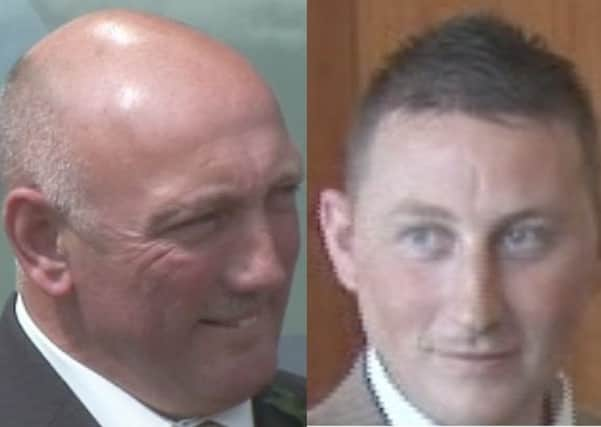Deal was struck with fuel smugglers in Blair era: MP


Last week nine people were sentenced for a Shankill Road-based scam which saw 4.5 million litres of red diesel laundered in a crime worth over £2.6 million in lost taxes.
The gang was headed by Robert Clarke (65) from Crumlin and Mark Pollock (37), from Belfast. The pair were given 12 months and 16 months in jail respectively, with the rest of the gang given suspended sentences. The trial heard Clarke was convicted in 2011 for a loyalist murder carried out in 1973.
Advertisement
Hide AdAdvertisement
Hide AdThe News Letter has repeatedly exposed fuel duty theft from the taxpayer of hundreds of millions annually over the past decade and has found that despite a constant stream of raids and convictions - the vast majority near the border - prison sentences are normally suspended, with fines only equalling lost revenue on the amount of fuel seized in any given raid. By contrast HM Revenue and Customs says the normal sentences in England and Wales are custodial.
The recent Paramilitaries Panel report found fuel smuggling remains a key source of funding for terrorists. DUP MP Ian Paisley, who played a key role probing the fraud for many years at Westminster, says it has cost the Exchequer over £1bn in lost duty over the past decade. The latest conviction “raises eyebrows” he said.
He was also “shocked” at how lenient last week’s sentences were.
“Most people know that the majority of crime in fuel happens in the border area and yet we have a focus on inner Belfast which almost seems like a diversion from the real issue,” he said.
Advertisement
Hide AdAdvertisement
Hide AdThe last report commissioned by the Republic of Ireland estimated that it lost 600m Euro annually in taxes to fuel fraud.
With much laundered fuel from the bordered smuggled into Great Britain daily, the scale of losses to the UK is similar, Mr Paisley said.
“I am certain that some deal was done during the Tony Blair premiership to turn a blind eye to all this - of this I have absolutely no doubt.”
In 2009, south Armagh Pastor Barrie Halliday produced correspondence that suggested there were efforts to mediate a tax amnesty between the government and south Armagh fuel fraudsters.
Advertisement
Hide AdAdvertisement
Hide AdTUV leader Jim Allister said prison sentences have been “a long time coming”.
“Even the authorities finding culprits on-site is a relative novelty,” he said. “Certainly the style of South Armagh investigations often seemed to focus on ghost town scenes with no one to be seen. How convenient!
“Is it a matter of geography or design that suddenly fuel fraudsters can be found and convicted from the Shankill?
“I welcome these convictions, but want to know why the epicentre of fuel smuggling, South Armagh, has escaped so lightly? I sense the hand of politics, even protection of ‘the process’.”
Advertisement
Hide AdAdvertisement
Hide AdSDLP Justice spokesman Alex Attwood, said: “There is no doubt that there appears to have been a light touch by enforcement authorities in Northern Ireland in relation to fuel smuggling. There has been some evidence in more recent times of an escalation in enforcement but it is still short.”
The Lord Chief Justice’s Office has responded to claims that border crime gangs are not being jailed for fuel fraud by pointing out that judges make decisions based on the specific facts of each case.
A spokeswoman said sentencing in each case “is a matter for each individual judge after consideration of the specific facts of each case”.
A spokeswoman added: “The courts in this jurisdiction have stated that in cases of this nature the overall level of culpability should be assessed by consideration of the amount of tax evaded, the period of time the evasion took place, the efforts made to conceal the fraud, whether others were drawn in and corrupted, the character of the defendant, the defendant’s personal gain, his plea and the amount recovered.”
Advertisement
Hide AdAdvertisement
Hide AdCo-operation with the law enforcement agencies is a very important factor and admission of guilt at interview followed by a plea of guilty at arraignment should attract an appropriate reduction in sentence - normally about one third, she said, and the sentence may be reduced further should the co-operation extend to assisting police. Recognition of the co-operation and a plea of guilty may also result in a suspended sentence.